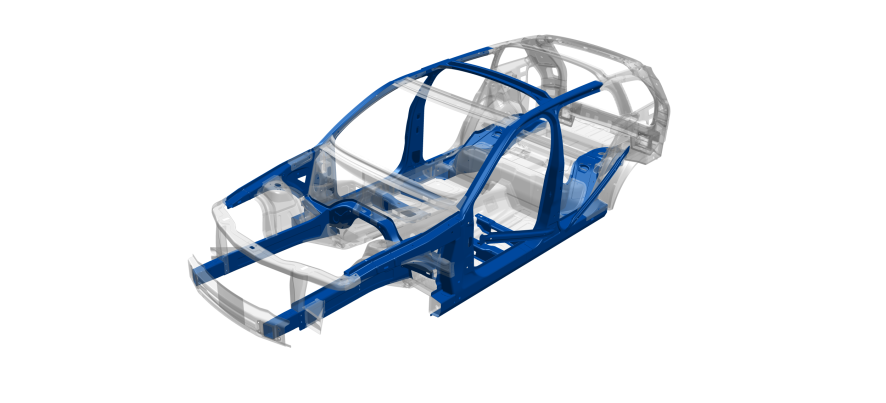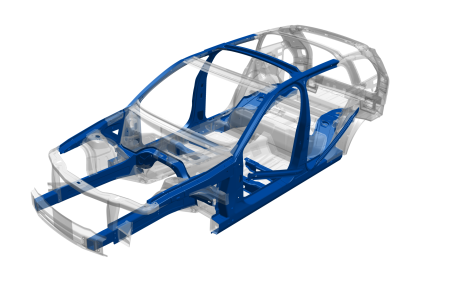Daily press, 2022-04-04, 02:30 pm
New product development in collaboration with JFE Steel Corporation
Global proposal of new high-tensile steel for cold forming for automobiles
Japan's JFE Steel Corporation, one of the world's leading integrated steel producers, and Germany's largest steel maker, thyssenkrupp Steel Europe, have jointly launched a new 980 and 1180MPa class high-strength steel for cold forming.
These products represent higher yield strength and higher ductility, especially excellent local ductility, compared to conventional high-tensile steels. These characteristics contribute to further weight reduction of the automobile body frame (Body in White) and better crash safety performance, and also to higher productivity and lower manufacturing costs at customers because the complicated components can be formed by conventional cold (press/roll) forming process without using hot stamping process.
In the current automobile vehicle design, it is required to achieve energy saving, weight reduction for reducing CO2 emissions and crash safety performance at a same time. However, the higher strength of steel for weight reduction inevitably results in its inferior formability, and thus it has been difficult to apply higher strength steel to more complicate components.
To overcome this challenge, JFE and thyssenkrupp Steel have developed these products by designing a new steel composition & microstructure especially focusing on the local ductility of steel and by establishing a new heat treatment method utilizing the Quenching & Partitioning process1. JFE and thyssenkrupp Steel have a wide range of intellectual properties regarding these new products and manufacturing process, and these products can be supplied globally by JFE and thyssenkrupp Steel for automobile applications. The strength level of products are 980 and 1180MPa, with various type of coating, uncoated, galvannealed, and galvanized. These new products are designed for the wide applications to next-generation vehicles including battery electric vehicles. In addition, JFE and thyssenkrupp Steel continue to jointly develop products with even higher strength level.
JFE and thyssenkrupp Steel will continue to contribute to more sustainable society through these products, which realize better passenger safety and higher fuel efficiency (less CO2 emission) by the weight reduction of vehicles.
1 Quenching & Partitioning Process: A metallurgical process that stabilizes at room temperature by quenching and reheating the austenite phase, which is produced at high temperatures and contributes to ductility.
[Applicable component] ©thyssenkrupp Steel

Rear Side Member
Rocker/Side-sill Outer
Seat Cross Member
A Pillar Applications
B Pillar Applications
About JFE Steel Corporation
JFE Steel Corporation, one of the world’s leading integrated steel producers, was established through the consolidation of NKK Corporation and Kawasaki Steel Corporation in 2003. The company operates several steelworks in Japan and numerous branch offices and affiliates throughout the world. JFE Steel leverages world-class technologies and know-how to produce a wide range of products based on its “Only One, Number One” strategy of focusing on unique and best-in-class products. The company reported consolidated sales of 2,255 billion yen and consolidated crude steel output of 23.96 million tons in the fiscal year ended March 2021.
About thyssenkrupp Steel
thyssenkrupp Steel is one of the world’s leading suppliers of high-grade flat steel and stands for innovations in steel and high-quality products for innovative and demanding applications. With around 26,300 employees, the company produces about 11 million tonnes of crude steel per year – making it Germany’s largest flat steel manufacturer. Its capabilities range from custom material solutions to material-related services.
As a pioneer in climate transformation, thyssenkrupp Steel has set itself the goal to produce 3 million tonnes of CO2 neutral steel per year from 2030 on, and to make its steel production fully climate-neutral by 2045.




